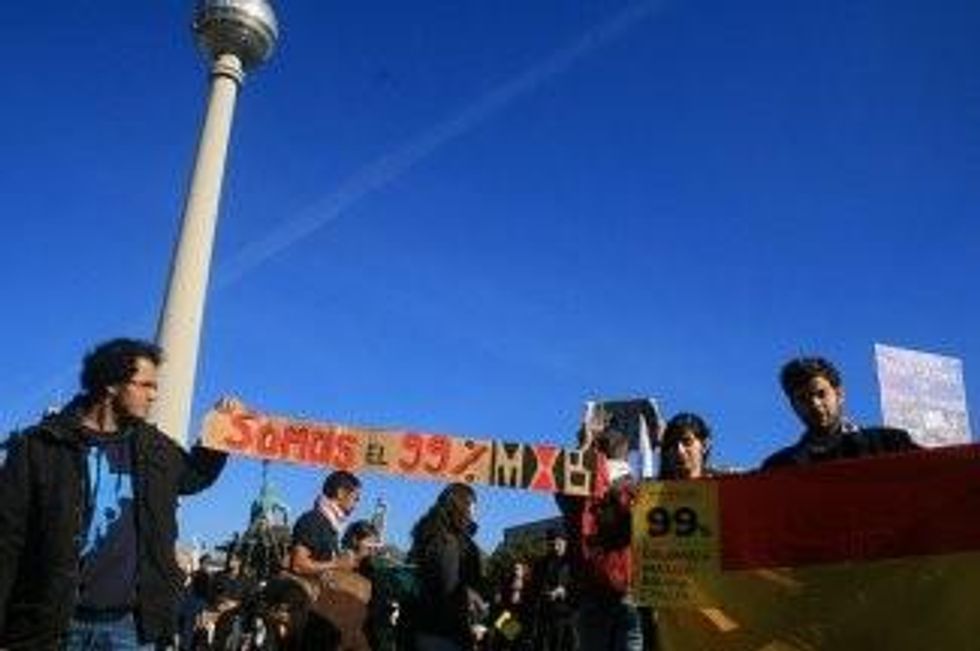Something enormous happened on Saturday night. In over a thousand towns and cities around the world, people from all walks of life took to the streets and occupied the squares in an international "day of action" against austerity and corporate greed. In Madrid, I watched 60,000 stamp and cheer in Puerta del Sol as protesters took over a nearby building and dropped a banner reading "Somos El 99%" ("we are the 99 per cent"), a slogan from the Occupy Wall Street movement which has become a mantra for new global resistance.
As thousands streamed into the main square of the Spanish capital, a projector was showing hundreds facing down police to camp outside the London Stock Exchange. Protest, like profit, has become globalized.
The fact that politicians and pundits are asking what all these people want can be considered a victory for the "occupy everywhere" movement. It's not a question many in public life have seemed much concerned with in the past decade.
What commentators fail to understand is that occupation is itself a demand. It's a new, practical politics for those disillusioned with representative democracy, which demonstrators claim is a private club run by the rich, for the rich.
The recolonization of public space, the forming of alternative communities based on direct democracy where people can meet and realize a common struggle, is an act of defiance with its own solution to the alienation and frustrations of life under capitalism. Those who attend occupations with individual grievances stay because they want to belong to a community built on mutual aid and shared values.
As political ambitions go, "occupy everywhere" is hardly modest. It is fitting that the most notable showdown of Saturday night took place in New York's Times Square, where thousands of peaceful protesters clashed with mounted police under the glow of giant electric billboards in this temple to corporate power.
What is being occupied is far more than a few public squares for a few weeks. What's being reoccupied is the collective political imagination, and a sense of collective possibility - beyond nationalism, beyond left and right - as millions of people lose faith in mainstream politics.
Power is not being petitioned here - it's being reinvented. That's what makes "occupy everywhere" so fascinating and also so exciting.




